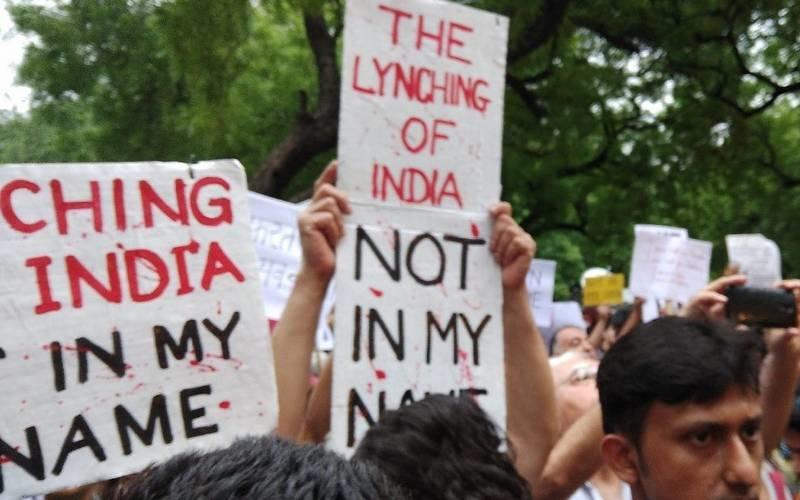Mob Lynching Over Social Media Rumours Continue

A woman in Ahmedabad was lynched to death by a mob over alleged rumours making rounds on social media about her being a ‘child lifter’. The woman succumbed to her injuries and was declared dead at the Ahmedabad City Hospital. The mob also attacked three other women.
The woman, who was identified as Santiben Marwari, was a beggar who had come to the city from Rajasthan and lived along with the other women in hutments on the outskirts of the city.
The Ahmedabad police issued an advisory asking people not to believe in social media messages and videos about any ‘child-lifting gang’ roaming in the city. The police also warned those spreading rumours on Whatsapp, Facebook, and other platforms to incite people.
In the past year, several cases of lynching arising out of social media rumours have been reported across the country.
The first such incident of mob lynching took place in July last year when a similar rumour was spread on WhatsApp in Jharkhand. A mob of several hundred people attacked and killed seven men. The rumour turned out to be false and the slain men innocent.
On June 8, two young men, in the Karbi Anglong district of Assam were viciously attacked by a mob that accused them of being ‘child lifters’. The attack was prompted by rumours spread via telephone calls and WhatsApp messages suggesting that the two men were fleeing with a kidnapped child in a black SUV.
Soon after the incident, local newspapers reported that two men were lynched in Hojai town because they were suspected to be child-lifters. In another rural pocket, an elderly man was lynched to death because people thought him to be a sorcerer.
In February, two Sikh men from Punjab were mistaken to be child-lifters and beaten by a mob in Kamrup district.
Earlier this month, residents of the Chandgaon, town in Aurangabad, Maharashtra, attacked eight people from Pardhi and Bhil tribes thinking they were thieves. The police cited social media rumours as the cause of upheaval. In another case, reported this month, two men of the tribal community were beaten to death and six others were gravely injured in the same village after a mob of about 400 people attacked them over the suspicion that they were robbers.
In May, three people in Andhra Pradesh were lynched and four others were assaulted. The attacks were spurred by WhatsApp messages about child-lifting gangs that “smash skulls to devour brains”.
Last month in Karnataka, a fake WhatsApp video which was widely circulated, suggested that a gang from outside the state was stealing children. Following this, a man was beaten to death by a mob which mistook him for a child-lifter. The police later identified him as a paan vendor who had come from Rajasthan.
Read More: Mob Lynching in the Name of Nationalism, Continues
In the same month,, a group of people from Tiruvannamalai district, Tamil Nadu, beat an elderly woman to death over the assumption that she was trying to steal a child. Four of her relatives who were also assaulted, got seriously injured.
Another incident was reported in Andhra Pradesh where a mob beat a mentally ill man to death over similar rumours and left the body hanging from a bridge near the Pulicat Lake.
A study conducted by the Internet and Mobile Association of India showed that Urban India, with an estimated population of 455 million, already has 295 million people using the internet. Out of the estimated population of 918 million according to the 2011 census, Rural India has only 186 million internet users. Internet penetration in Urban India has grown from 60.6% in December last year to 64.84% in December 2017. Internet penetration in Rural India on the other hand, has grown from 18% last December to 20.26% in December 2017.
Read More: Hapur Lynching: Police Covering Up Hate Crime? New Video Suggests So
India happens to be one of the biggest markets for several social media and communication companies like Facebook, Twitter, and WhatsApp. The massive consumption of social media content makes it easier for people with malicious intent to propagate fake news in order to create a rift between various communities. Declining smart phone prices and the fall in internet data prices are some of the other major factors leading to the wide circulation of such rumours.
Get the latest reports & analysis with people's perspective on Protests, movements & deep analytical videos, discussions of the current affairs in your Telegram app. Subscribe to NewsClick's Telegram channel & get Real-Time updates on stories, as they get published on our website.
























